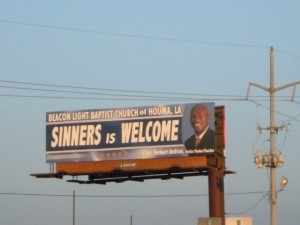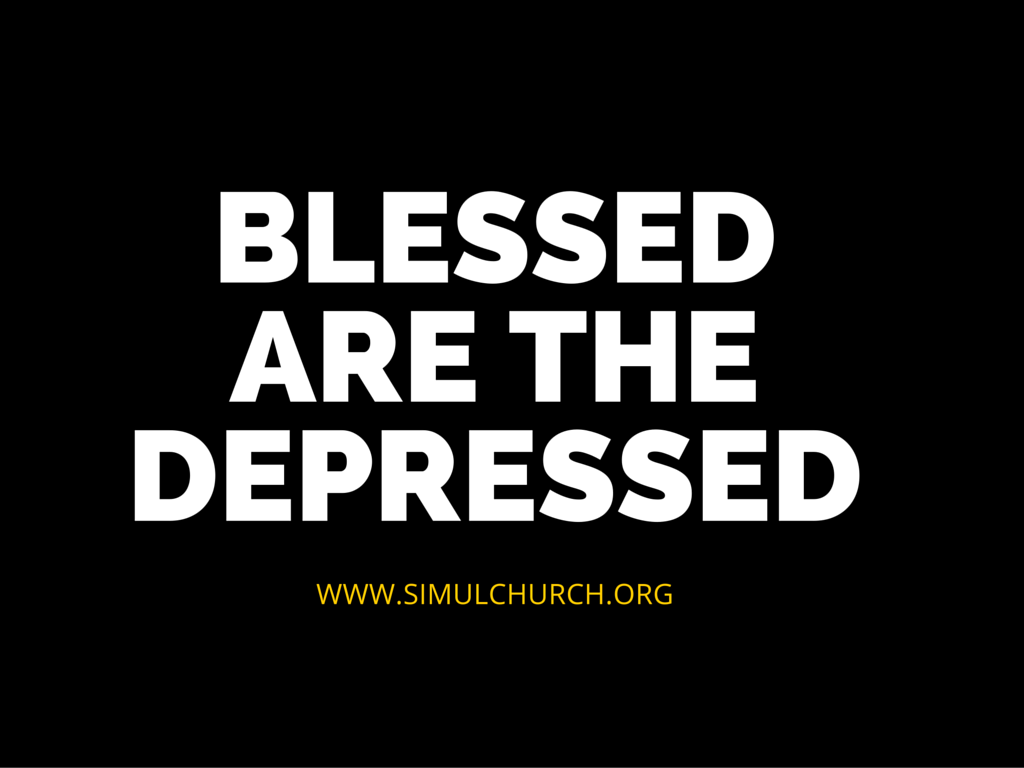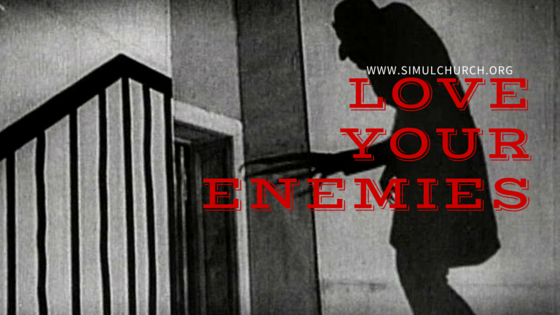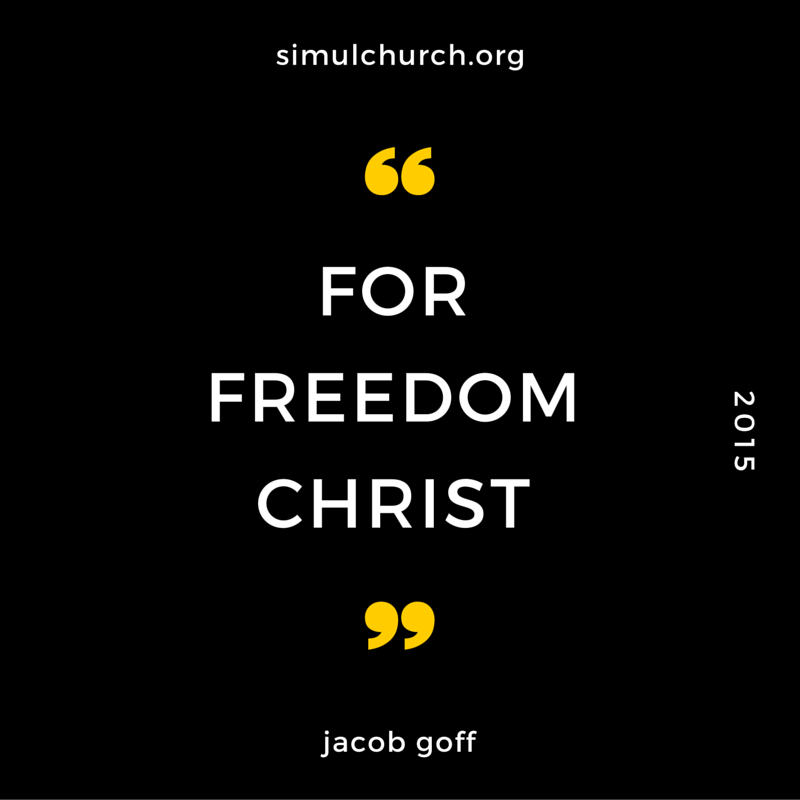 I think the notion of unconditional grace (the only kind of grace) is extremely offensive, especially to those in power. “Power” and “love for sinners” are hard concepts to philosophically piece together.
I think the notion of unconditional grace (the only kind of grace) is extremely offensive, especially to those in power. “Power” and “love for sinners” are hard concepts to philosophically piece together.
It’s why Jesus’ talk of the Kingdom of God was so revolutionary – a Kingdom ruled by the grace of a good shepherd, not the wrath of a judge who is keeping a record of your wrongs?
I started talking to a woman in Barnes & Noble about gardening last night. I spend a lot of time at bookstores when I’m trying to get my head around things (it’s been a wild year – the wildest of years on record, for me). We began talking about gardening but eventually got into a discussion of her daughters, and soon after that the radical liberal views proclaimed obnoxiously by one of her daughter’s exes. I find that, as a 26 year old in law school with a decent haircut and the gooey politeness of a boy who learned manners in a baptist sunday school, moms of college-aged daughters seek guys like me out for daughter-dating advice & commentary. It comes up more than what it seems like — statistically — it should. I am confronted with indicative statements about guys I’ve never met that end with question marks (He is one of those really liberal types? He likes videogames? He has a goatee? — Ma’m, do you use your composted soil with your vegetables or herbs or both?). For this liberal ex specifically, she was wondering why he seemed to “snap” in a matter of days, from polite church-going evangelical conservative to bra-burning hippie liberal.

I have seen this many times, I said. I mentioned that there is a huge identity crisis right now for young people, who grew up mostly in Christian homes but have no clue how to reconcile how their parents talk about going to church with the problems they see in organized religion. Because of this, we are having to sort through a lot of information that many of our parents refuse to even look at with us. We are asking questions that many of our parents were taught not to ask. This can be very frustrating for the melancholic types who require a high degree of empathy from their superiors. If we aren’t being heard, we will often snap.
She said she understood what I was talking about but still wondered why kids aren’t as polite as they used to be (she later, curiously, reversed her view on this). She then asked me to describe what I think is wrong with Christianity today, and why these young people are leaving the church. What are these elusive “problems” in the church that I kept talking about. I was caught off guard. I thought: Man, I tweet about this all the time, how do I boil all that down to like one idea? It took me a second.
I (after rambling for a few minutes) found the illustration that communicates what I think is wrong with evangelicalism. There is a story, I said, where two men go up to a mountain to pray. Jesus told this story, I said. One of the men is a super holy Pharisee, to whom everyone looks for spiritual guidance and advice. The other man is a back-stabbing, money-hoarding tax collector. The Pharisee – although we think of them as self-righteous jerks – was generally a good guy and spiritual leader. Strict and uptight, some peasants might snicker about the Pharisee behind his back, but overall the pharisee is one that the reigning pious of the time would deem a “man of God”.
So the pharisee stands tall and prays: Thank you God, that I am not like this tax collector here, who is a sinner!
The tax collector keeps his head bowed low and utters the desperate plea: God, have mercy on me, a sinner!
I told the woman that when the church seems to produce many more individuals who share the attitude of the Pharisee, then we have a major problem. Jesus said that, indeed, the second man (the scummy, dirty, desperate tax-collector) was the one who unloaded his sinful burdens and walked away justified that day.
All of us, evangelicals or whoever, has this tendency to ostracize others and set ourselves above them. It’s one of our most natural instincts. We then gather together with our collective ignorance and spiritual anxiety and we begin to delude ourselves as a group. The herd instinct. “Our situation isn’t as serious as the bible says it is . . . we can — we MUST — still contribute something to the equation of God’s love for us. Nothing is truly unconditional, but this means we get to prove ourselves!” It scares me when these groups (often while calling themselves the church) start to accept visions of greedy glory-hoarding (see the Pharisee’s prayer above, or visit an average church this sunday) as central to our faith, when those very visions are actually cancerous to our faith. We start to chase the narratives of human glory rather than the posture of Christ – who (I remind you) ended up crucified and humiliated by humans not kingified. It’s strange how little Jesus was concerned with man’s approval, and how those who proclaim his name are singularly obsessed with earning man’s approval.
The church, properly understood, is where we go to remember that we are all desperately in need of a God who redeems sinners. The church is where we go not to escape this designation as sinners, but indeed to be justified by God, covered in the redeeming blood of Christ (not the sweat of man — which won’t redeem a single soul).
This point is critical. Those who don’t know that they are sinners always have identity crises when suffering creeps up their white-washed, suburban doorsteps. It gets bad. Suffering isn’t easy for one who knows he is a sinner, but at least the drowning man knows that he is supposed to yell for help. The self-assured man asleep in a house into which seeps carbon monoxide, on the other hand, has a much lower chance of being rescued.
When people suffer and things hit the fan, the Christian need not panic. The Christian needs only to remember that Christ’s blessing is for the widows and the orphans.
And, for those of us who don’t yet realize that we are indeed widows and orphans . . . sigh.
As time rolls on, and suffering takes its toll, and death does its work, may we each come to realize that the only faith capable of resonating in our broken hearts is one that insists on God’s unconditional acceptance of beggars, widows, and orphans who come without merit but only feeble arms clinging to Christ’s cloak.




